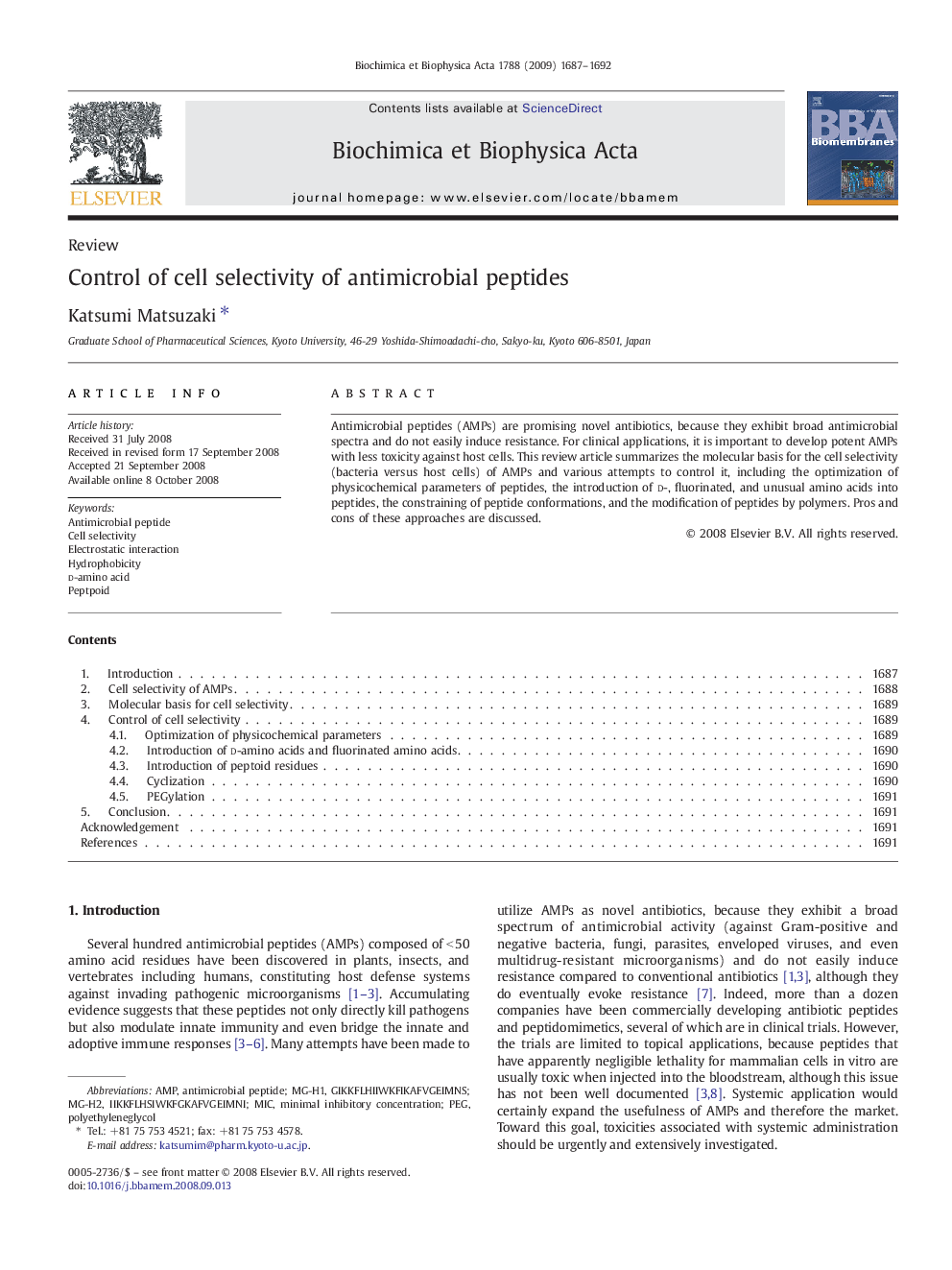| Article ID | Journal | Published Year | Pages | File Type |
|---|---|---|---|---|
| 1945106 | Biochimica et Biophysica Acta (BBA) - Biomembranes | 2009 | 6 Pages |
Abstract
Antimicrobial peptides (AMPs) are promising novel antibiotics, because they exhibit broad antimicrobial spectra and do not easily induce resistance. For clinical applications, it is important to develop potent AMPs with less toxicity against host cells. This review article summarizes the molecular basis for the cell selectivity (bacteria versus host cells) of AMPs and various attempts to control it, including the optimization of physicochemical parameters of peptides, the introduction of d-, fluorinated, and unusual amino acids into peptides, the constraining of peptide conformations, and the modification of peptides by polymers. Pros and cons of these approaches are discussed.
Keywords
Related Topics
Life Sciences
Biochemistry, Genetics and Molecular Biology
Biochemistry
Authors
Katsumi Matsuzaki,
